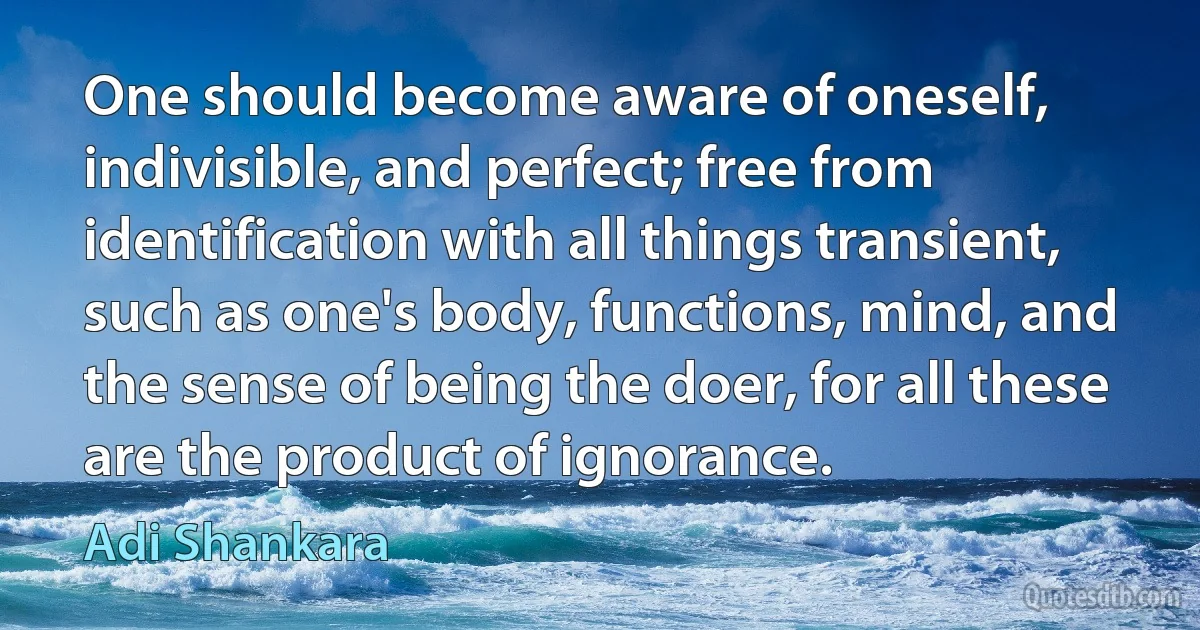Adi Shankara quotes
He who renouncing all activities, who is free of all the limitations of time, space and direction, worships his own Atman which is present everywhere, which is the destroyer of heat and cold, which is Bliss-Eternal and stainless, becomes All-knowing and All-pervading and attains thereafter Immortality.

Adi Shankara
Among Hindus, the date of Shankara is controversial; some date him to c. 500 BC. In this case, I wholeheartedly support the conventional date established by Indologists, among other reasons because his choice of Dwarka for his Western matha, and not Hinglaj (west of the Indus) as intended, fits neatly with the fact that the latter area had passed under Muslim control in the early eighth century.

Adi Shankara
Though he lives in the conditionings (Upadhis), he, the contemplative one, remains ever unconcerned with anything or he may move about like the wind, perfectly unattached.
On the destruction of the Upadhis, the contemplative one is totally absorbed in "Vishnu", the All-pervading Spirit, like water into water, space into space and light into light.
Realise That to be Brahman, the attainment of which leaves nothing more to be attained, the blessedness of which leaves no other blessing to be desired and the knowledge of which leaves nothing more to be known.

Adi Shankara
In his short life of thirty-two years Shankara achieved that union of sage and saint, of wisdom and kindliness, which characterizes the loftiest type of man produced in India... There is much metaphysical wind in these discourses, and arid deserts of textual exposition; but they may be forgiven in a man who at the age of thirty could be at once the Aquinas and the Kant of India... Shankara establishes the source of his philosophy at a remote and subtle point never quite clearly visioned again until, a thousand years later, Immanuel Kant wrote his Critique of Pure Reason... We do not know how much Parmenides' insistence that the Many are unreal, and that only the One exists, owed to the Upanishads, or contributed to Shankara; nor can we establish any connection, of cause or suggestion, between Shankara and the astonishingly similar philosophy of Immanuel Kant.

Adi Shankara


